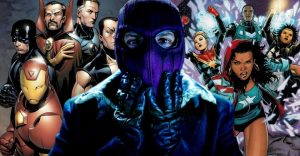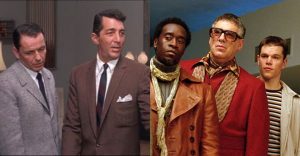5 Reasons The Sega Dreamcast Is A Forgotten Masterpiece (& 5 Reasons Why It Struggled)

The Sega Dreamcast marked the end of Sega’s decades-long battle in the console wars. To some, the Dreamcast is a near-useless hunk of plastic collecting dust in their closets, but, to others, it’s an important part of their youths, of gaming culture, and of the technological advancements in gaming.
So, what makes the Dreamcast so polarizing? How is it somehow both the best and worst console ever created? Here are a few reasons why the Dreamcast is a forgotten masterpiece, and a few reasons why the console notoriously struggled, and ultimately, fizzled into obscurity.
10 Masterpiece: The Graphics

When the Dreamcast was launched in 1998, its polygon-pushing powers were far beyond that of the PlayStation and N64—that should be obvious, as its technically a member of the sixth console generation alongside the GameCube, Xbox, and PS2. What made the Dreamcast feel so incredible was that the next sixth generation console, the PS2, wouldn’t be released for another two years, giving the Dreamcast a feeling of being way ahead of its time.
9 Struggled: One Analog Stick

As all modern gamers know, having two analog sticks is basically a requirement for gaming these days. Aside from 2D side-scrollers, the combination of two analog sticks is essential to almost every modern game. The PlayStation was the first to debut a dual-analog controller—albeit halfway through its lifespan—ushering in a new era of player abilities.
Sega had some time to develop this technology and improve on it, but they instead chose to keep their controller with a single analog stick, immediately hindering the performance of every 3D adventure game and first-person shooter for the console.
8 Masterpiece: Risky Games That Paid Off

The Dreamcast still has a cult following. In fact, independent game developers are still releasing new titles for the Dreamcast to this day. One of the biggest reasons why the Dreamcast gained such a hardcore fanbase was because of its odd and wonderful game library.
While the Dreamcast had tons of issues with its game library (more on that later) there were a select few that were simply out of this world. Games like Shenmue, Jet Set Radio, Rez, Skies of Arcadia, and Seaman all received praise for being groundbreaking, exciting, unique, and incredibly fun to play.
7 Struggled: Forgotten Franchises

Sega learned a hard lesson with the Saturn; gamers fell in love with Sonic the Hedgehog and were upset that there was never a Sonic game released for the Saturn console. In fact, the lack of a single new Sonic title is often cited as one of the main reasons why the Saturn failed.
However, the Saturn did create some excellent games of its own, like Panzer Dragoon, Nights into Dreams, Dragon Force, and more. Sega, however, clearly didn’t learn its lesson, because the company didn’t continue any of these franchises into the Dreamcast era, once again alienating gamers who had fallen in love with Sega-exclusive titles.
6 Masterpiece: The Rebirth of Sonic

Fortunately, Sega had enough sense to bring back Sonic the Hedgehog. Sonic Adventure was one of Dreamcast’s launch titles and was promoted as the must-play game for the console. Fortunately for Sega, critics and gamers agreed, as Sonic Adventure was met with rave reviews, went on to be the Dreamcast’s bestselling game, and has lived on as the game everyone remembers for the console.
Sonic Adventure had finally and officially brought Sonic into a fully 3D world. The game was massive and immersive, the graphics were stunning—for the time, at least—and the music was phenomenal. It once again proved that, while riddled with issues, Sega still knew how to strike gold.
5 Struggled: Too Many Arcade Ports

Sega had long been famous for bringing the arcade experience home. Ports of Virtua Fighter and Dead or Alive to the Saturn had been some of the console’s highlights. However, as the 2000s rolled around, the gaming landscape had started to change. The N64 had brought Super Mario 64 and Ocarina of Time. PlayStation had brought Final Fantasy VII and Metal Gear Solid. Gamers had started craving longer games with in-depth plots and exciting experiences.
Sega, however, kept dumping out loads of fighting games, racing games, plotless arena shooters, and side-scrolling shoot-em-up games. Titles like Alien Front Online, Crazy Taxi, and Virtua Striker are all fun for short periods, but creating a library of short, arcade-centric titles wasn’t enough to carry the console.
4 Masterpiece: Online Connection

Many gaming systems tried introducing online gaming. Both the Sega Genesis and Sega Saturn even had online capabilities, but the Dreamcast was the first console to truly innovate by having a built-in modem for online connectivity. On the Dreamcast, gamers could not only play multiplayer games online, but they could also communicate with other players, and even browse the internet.
The concept was a hit, though it was hindered by the fact that, at time time, in-home internet connectivity was something of a rarity. However, despite the low number of users, it can’t be denied that Sega continued trying new and unique ways to push gaming into a new era.
3 Struggled: Lack Of Third-Party Support

The Dreamcast lacked third party support, meaning that gaming companies not tied to one of the console-makers (such as EA, Squaresoft, and Rockstar) weren’t really making games for the console. For example, the popular FIFA, Medal of Honor, and Mega Man franchises were never released on the Dreamcast.
This gave other consoles like PlayStation and N64 an advantage by having a much larger game library for players to choose from. Because of this, it was up to Sega to attract customers based solely on their desire for Dreamcast-exclusive content. This issue, compounded with the numerous arcade ports, hindered the console.
2 Masterpiece: Advanced Peripherals

As stated before, Sega really pushed gaming into a new era, even though consumers weren’t yet ready for it. On top of the machine’s revolutionary internet connection, the Dreamcast also had a boatload of unique and innovative peripherals.
One of the most-discussed was the Dreamcast’s microphone, which could be used for online games like Alien Front Online and for games like Seaman, an ahead-of-its-time pet sim. Another revolutionary device was the VMU (Video Memory Unit) which served as Dreamcast’s memory card, but it could also be used to play minigames and could be connected together for file-sharing and multiplayer gaming. It’s yet another example of how the Dreamcast was both weird and wonderful.
1 Struggled: Sega Was A Mess

The biggest reason why the Dreamcast failed was, unfortunately, because of Sega itself. At the time, Half of Sega wanted to fight in the console wars, while the other half of the company wanted to move away and just develop video games. Sega of Japan hated Sega of America (and vice versa), and the two got to a point where they couldn’t agree on anything.
Sega was also interested in catering to the Japanese market even though Sega’s biggest market was North America. Sega ended up alienating its biggest audience, and, when the PS2 and Xbox were released, gamers flocked to the new consoles in record numbers, forcing Sega to discontinue the Dreamcast just a few years after its launch.
About The Author


















